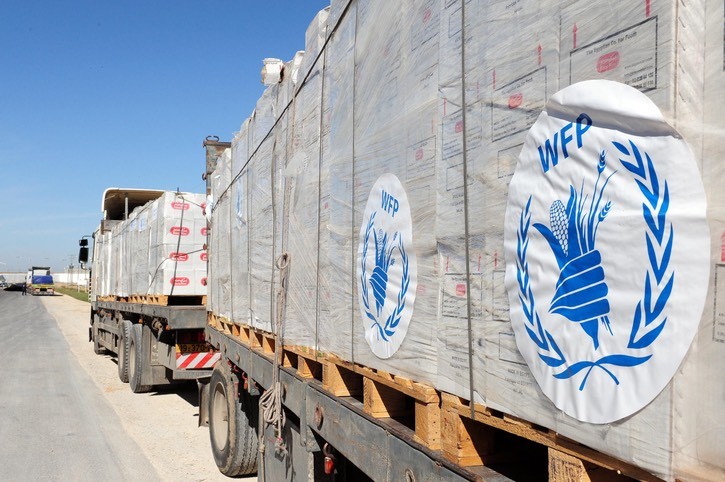The World Food Programme (WFP) has successfully sent a first convoy to deliver food assistance from Sudan to the north-western South Sudanese city of Aweil in Bahr El-Ghazal region. It plans to send enough food down the new route in 2018 to feed 1.7 million people for 10 months.
A total of 19 WFP-contracted trucks loaded with 500 metric tons of sorghum left El Obeid in central Sudan on 22 November and arrived five days later in Aweil, after driving 830 kilometres (515 miles). This is the third overland route to open between the two countries since 2014.
The convoy carried a total of 500 metric tons of sorghum – enough to meet the emergency food needs of 30,000 people for a month. WFP plans to use the new route regularly to deliver 30,000 metric tons of life-saving assistance into South Sudan in 2018 if it receives donor support to buy the food.
“WFP thanks the Governments of Sudan and South Sudan for providing a third humanitarian corridor at this crucial time,” said WFP South Sudan Country Director Adnan Khan. “This strengthens our ability to move large amounts of life-saving food assistance by road into South Sudan.”
WFP is now able to reach three locations in South Sudan by road from Sudan: Renk, Bentieu and now Aweil. This enables WFP to deliver life-saving assistance more swiftly and efficiently and makes it easier to pre-position food before the rainy season, which cuts road access to many communities.
WFP has assisted a total of 4.6 million people in South Sudan so far this year with 208,000 metric tons of food and US$24.5 million in cash. In October, WFP and its partners assisted a total of 2.6 million people.
From October to December, an estimated 25,000 people face famine conditions in Western Bahr El Ghazal and Jonglei regions at a time when the harvest is coming in and food should be relatively plentiful. Last year, no one faced famine conditions during the harvest period.
WFP, its partners and donors have proven humanitarian assistance saves lives in South Sudan. Given access, it is possible to reverse famine and stop it spreading. However, humanitarian assistance can only do so much. The only way to save South Sudan is to end the protracted conflict.

